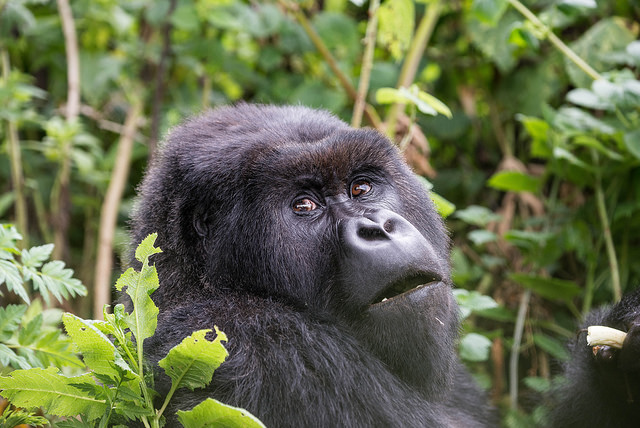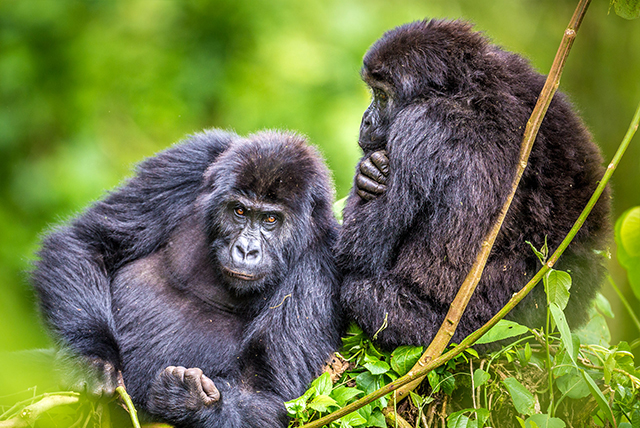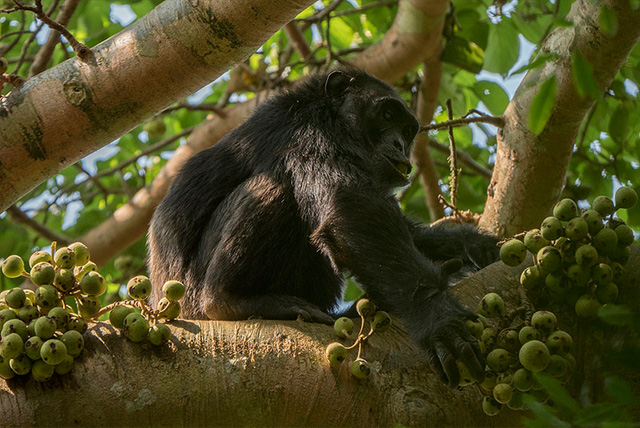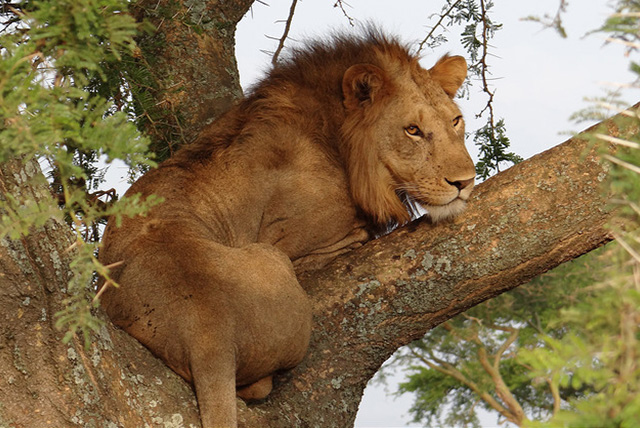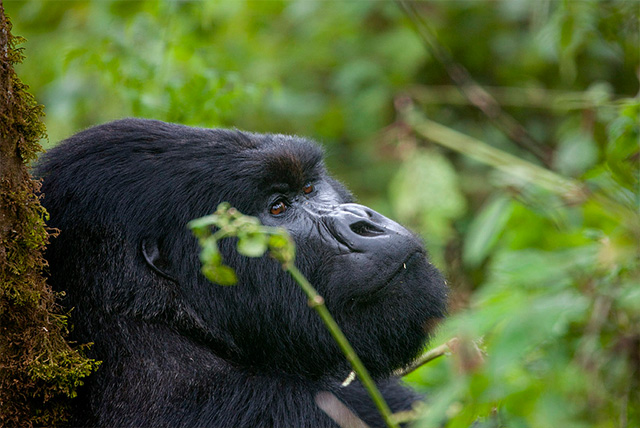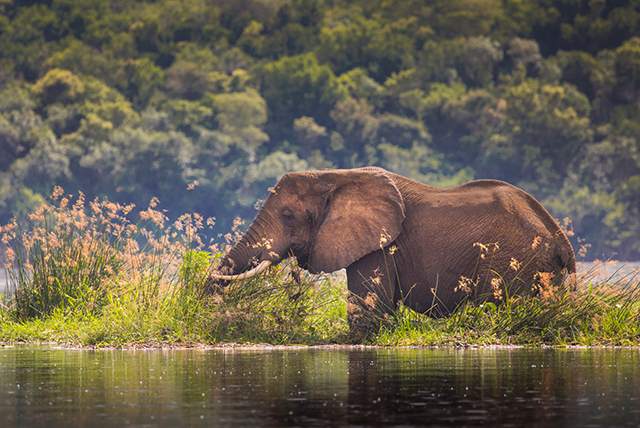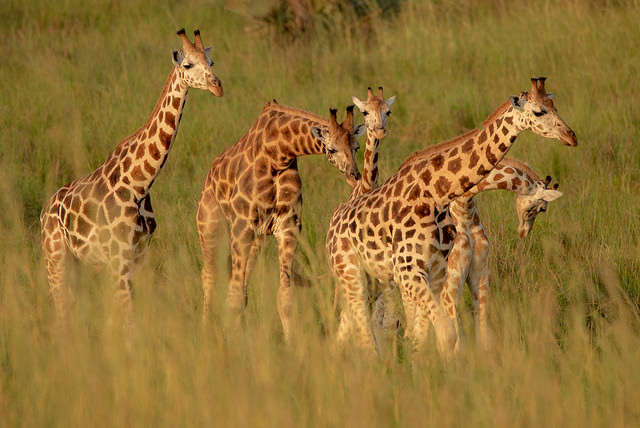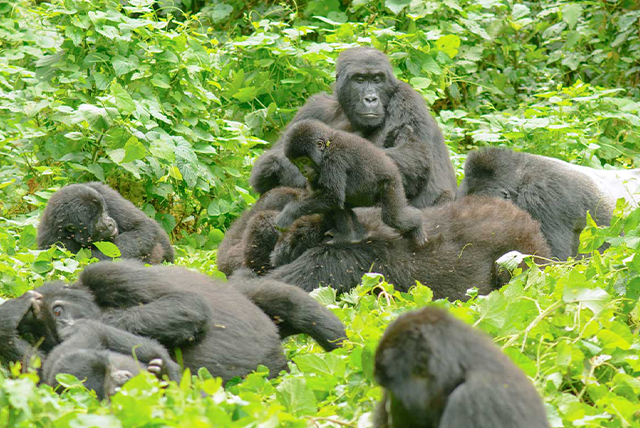Rwanda is an exciting tourist destination: this is what you should know
Definitely, Rwanda is a secure destination to explore! This East African gem defies expectations and enchants explorers with its impressive safety record and allure. A 2022 survey by Usebounce, a luggage storage app, revealed that Rwanda stands out as the 6th safest country globally and holds the title of the safest destination in Africa for solo travelers. Rwanda’s reputation as one of Africa’s most secure destinations is truly earned. With a focus on peace, progress, and sustainability, this East African gem has evolved into a paradise for those in search of excitement and serenity.
The 2018 Gallup Global Law and Order report highlights Rwanda’s impressive safety record, placing it 40th in the world and 2nd in Africa on the Law and Order Index. This index assesses individual safety and encounters with crime and the justice system. The report reveals that a remarkable 83% of Rwandan residents have faith in their local police force and feel secure when strolling alone at night. The remarkable confidence levels showcase the government’s successful strategies in upholding law and order, alongside the community’s enthusiastic participation in fostering a safe atmosphere.
In this detailed guide, we’ll explore the factors contributing to Rwanda’s remarkable safety record. We’ll tackle common worries, offer useful advice, and showcase the thrilling experiences that lie ahead in this land of a thousand hills. Whether you’re a solo female traveler, a family in search of exciting experiences, or a wildlife enthusiast ready to meet gorillas in their natural environment, Rwanda embraces you warmly and prioritizes your safety.
Minor Offenses in Rwanda
Rwanda presents a relatively safe environment when compared to many other African nations, yet one might encounter minor thefts like pickpocketing, purse snatching, and sporadic cases of home break-ins, car break-ins, and the theft of vehicle parts, particularly in bustling areas of Kigali. Nonetheless, it is essential to recognize that the majority of offenses in Rwanda are non-violent.
Kigali, the capital city, is renowned for its remarkable safety, often standing out as one of the most secure places in Africa. Adventurers can roam freely during the day, but like any vibrant city, it’s smart to stay alert as night falls. Steer clear of wandering solo in dimly lit spots, and make use of trusted transportation choices like taxis or ride-sharing services.
As a visitor, you can enhance your experience by:
Being alert: Keep an eye on your environment, particularly in bustling markets, lively nightclubs, and popular tourist spots.
Embrace your surroundings: Stay aware of your possessions, keep valuables out of sight, and respect the space around you.
Embrace the journey: Secure your important documents and valuables in hotel safes, and think about using a money belt for extra peace of mind.
Embrace these straightforward precautions to guarantee a thrilling and memorable experience in Rwanda. Keep in mind that every corner of Rwanda is open for exploration, but it is always smart to stay alert and follow your intuition.
Political Stability
Rwanda is often seen as a secure destination for travelers to explore. The government has embarked on an exciting journey, making remarkable progress in fostering political stability and tackling corruption in recent years. President Paul Kagame and the Rwandan Patriotic Front (RPF) have been pivotal in this journey, focusing on ensuring safety and fostering economic growth. Their efforts have created a secure space where travelers can embark on exciting explorations without hesitation.
The government’s grip on public space and its firm position against political dissent have played a role in the nation’s stability. Rwanda has skillfully navigated the challenges of the past, steering clear of significant civil unrest since the tragic events of 1994, while its security forces uphold a strong presence across the land. The adept management of the COVID-19 pandemic significantly strengthened public backing and enhanced the government’s abilities.
Rwanda’s low crime rate and well-developed emergency response system enhance its allure as a secure destination. However, it’s crucial to recognize that the regime’s authoritarian characteristics and the concentration of power within the RPF spark inquiries regarding the enduring viability of this stability.
For travelers, this means that while Rwanda offers a sense of safety and security, it’s wise to remain aware of the country’s political landscape. Stay alert and steer clear of political conversations or actions, particularly in delicate situations.
Rwanda’s political stability, along with its low crime rate and efficient emergency response system, creates an inviting atmosphere for tourists seeking exploration. Nonetheless, like any travel spot, it is essential to stay mindful of the larger picture and choose wisely.
RWANDA NATIONAL PARKS
Wellness Issues
Rwanda is a vibrant destination, but taking a few precautions can ensure a smooth and enjoyable trip.
Malaria can be found in Rwanda, especially in the lower-altitude regions such as Kigali, Akagera National Park in the east, and certain areas of Nyungwe Forest National Park. Before embarking on your journey to these areas, it is wise to consult your doctor or a travel health clinic ahead of time to explore suitable malaria prevention strategies, including prophylactic medication.
Vaccinations: Alongside the standard vaccinations like measles-mumps-rubella (MMR) and diphtheria-tetanus-pertussis (DTaP), it is wise to explore extra ones suggested for your journey to Rwanda. These include Yellow Fever (if coming from a risk zone), Hepatitis A, Typhoid, Meningococcal Meningitis (particularly during the dry season), and Rabies (if you plan to partake in outdoor adventures or interact with animals).
Yellow Fever: A vaccination certificate for Yellow Fever is necessary for entry if you’re coming from a country where there is a risk of transmission.
Other Health Concerns: Be aware of the possibility of travelers’ diarrhea, respiratory infections, and altitude sickness during your journeys. Maintain proper hygiene, opt for bottled water, and take your time to adjust to higher altitudes to reduce these risks.
Medical Facilities: Rwanda has a scarcity of medical facilities, particularly beyond Kigali. In the event of a serious accident or illness, you might find yourself needing to be whisked away by air ambulance to Kenya or South Africa for treatment.
Travel Insurance: It’s crucial to secure thorough travel insurance that includes emergency medical treatment and evacuation, as your private health insurance might not be applicable in Rwanda. Explore international travel insurance options from providers such as World Nomads, Allianz Travel Insurance, IMG Global, or Seven Corners. Travel health insurance is essential for all international adventurers heading to Rwanda.
Emergency Numbers: If you find yourself in a critical situation, dial 112 and request an ambulance. Reach out to your insurance company without delay if you are directed to a medical facility for treatment.
Adventurers are encouraged to seek advice from a travel health expert 4-6 weeks prior to their journey to Rwanda for tailored guidance that considers their unique plans, activities, medical background, and potential risks.
For the latest and most comprehensive information on health recommendations for Rwanda, consult official sources like the Centers for Disease Control and Prevention (CDC) and the World Health Organization (WHO). These resources offer extensive insights on vaccinations, disease prevention, and maintaining your well-being while exploring new destinations.
Welcoming and Inviting Nature of Rwandans
Rwandans are celebrated for their friendly hospitality and inviting demeanor towards visitors. Their welcoming nature arises from a blend of rich cultural heritage, economic motivations, and a genuine eagerness to showcase their land to the globe. This inviting spirit is a vital aspect of Rwanda’s charm as a travel hotspot. There are a variety of factors contributing to this:
Ubwiru (Hospitality): Rwandans embrace a vibrant cultural tradition of welcoming others with open arms. Guests are embraced with genuine warmth and welcomed into homes with heartfelt hospitality. Welcoming guests with food and drink is a vibrant aspect of Rwandan culture.
Rwanda has embraced tourism as a key focus for its economic growth. The government has dedicated resources to enhancing infrastructure, promoting conservation initiatives, and ensuring a secure and welcoming atmosphere for all who come to explore. Rwandans enthusiastically share the wonders of their country with visitors.
The longing for connection: Engaging with travelers allows Rwandans to explore diverse cultures and forge bonds with individuals from across the globe. Many Rwandans are enthusiastic about sharing their vibrant culture and gaining insights from visitors.
Economic Benefits: Tourism creates opportunities and revenue for numerous Rwandans, including tour guides, hotel personnel, artisans, and farmers. Embracing visitors fosters the growth of local communities and enterprises.
Restoring National Pride: Following the 1994 genocide, tourism has played a crucial role in helping Rwanda restore its international reputation and national pride. Embracing visitors showcases the nation’s journey and strength.
Adventurous Souls Exploring Rwanda
Rwanda’s low crime rates, political stability, and welcoming locals create a safe and inviting environment for solo travelers. Women particularly discover Rwanda to be a welcoming and inspiring destination, where respect for women is woven into the very fabric of the culture.
Rwanda’s dedication to women’s inclusion and safety has earned it the impressive title of the second safest country in the world for solo female travelers. With more than 60% of parliament consisting of women, Rwanda stands out for its commitment to gender equality and the safety of women in the community. Solo female travelers often share experiences of feeling secure and embraced in Rwanda, though it is wise to remain vigilant, particularly after dark.
Advice for Independent Explorers:
Stay Connected: When you embark on a solo safari, share your itinerary with friends or family back home, and think about getting a local SIM card to keep in touch.
Select Your Lodging Carefully: Those venturing out alone should seek out trustworthy hotels or guesthouses that prioritize safety.
Participate in Group Adventures: Think about joining group tours or activities to connect with other travelers and discover new experiences together.
Follow Your Intuition: In every travel experience, stay alert to your environment and listen to your inner voice. If something feels off, trust your instincts and step away from the situation.
Exciting Wildlife Encounters
Your wildlife encounters in Rwanda promise to be both secure and profoundly impactful. Rwanda’s diverse wildlife, featuring the majestic mountain gorillas and the playful golden monkeys, captivates tourists from around the globe. The government has put in place strict safety measures and responsible tourism practices to safeguard the well-being of both visitors and wildlife.
Gorilla Trekking: Rwanda offers unforgettable experiences in the wild, where every moment is filled with excitement and discovery. Every group is kept small and is led by knowledgeable guides and trackers who have a deep understanding of gorilla behavior and their environment. Gorilla trekking experts focus on your well-being, offering guidance on how to engage with the gorillas in a respectful manner while ensuring you keep a safe distance.
Other Wildlife Encounters: As you embark on the journey of tracking golden monkeys in Volcanoes National Park or observing chimpanzees in Nyungwe Forest National Park, you’ll find that the same safety protocols are in effect. Skilled guides accompany every journey, guaranteeing a secure and rewarding experience while respecting the natural habitat of the wildlife.
Conservation Commitment: Rwanda’s unwavering dedication to safeguarding its natural treasures is showcased through its remarkable achievements in protecting endangered species. Strict regulations, anti-poaching patrols, and community involvement have all played a crucial role in the resurgence of gorilla populations and the safeguarding of essential ecosystems. Engaging in responsible wildlife tourism allows you to actively contribute to these vital conservation initiatives.
Your Safety First: Select a trusted tour operator and follow park regulations to embark on an exciting journey through Rwanda’s breathtaking landscapes, ensuring that your well-being is a top priority. The guides are equipped with first aid skills and emergency procedures, while the parks have set up protocols to tackle any unexpected scenarios.
Travel Safety
Rwanda features an impressive transportation network that ensures safe and convenient travel throughout the country. To navigate Rwanda effortlessly, keep these tips in mind:
Road Safety: Rwanda’s roads are typically in excellent condition, particularly the primary highways that link key cities and popular tourist spots. However, it’s essential to stay alert, as driving practices might vary from what you’re accustomed to. Stay alert for pedestrians, cyclists, and motorcycles, particularly in the countryside.
Public Transportation: Public buses link key towns and cities, offering an economical and dependable means of travel. Although public transportation in Rwanda offers a sense of exploration, it might not consistently provide the same level of reliability, comfort, or accessibility as hiring a private car. Share taxis frequently linger until they have a full load before setting off and may take extended pauses during the journey. For a more laid-back and personal journey, think about booking a taxi or utilizing ride-sharing options.
Private Transportation: Opting for a rental car offers a thrilling sense of freedom and the chance to explore at your own pace. In Rwanda, you will find a variety of trustworthy car rental companies ready to provide you with the perfect vehicle for your journey. If you are not at ease behind the wheel, opting for a car with a driver opens up a world of possibilities.
Domestic Flights: RwandaAir, the national carrier, provides domestic flights connecting Kigali with other key cities, such as Kamembe and Cyangugu. This choice offers ease for traversing vast expanses or swiftly accessing secluded locations.
Guidelines for Staying Safe:
Select trustworthy transportation options: Go for licensed taxis, well-known car rental agencies, and authorized bus services.
Settle on the fare beforehand: Confirm the price before hopping into a taxi or motorcycle taxi to steer clear of any confusion.
Stay ready for surprises along the way: The journey can take unexpected turns, with road conditions shifting and traffic jams popping up, particularly in urban areas. Embrace the unexpected and give yourself plenty of time for your travels.
Embrace the journey: Respect speed limits, buckle up for safety, and keep your phone out of reach while navigating the roads. The traffic police in Rwanda maintain a vigilant presence on public roads, ensuring that traffic rules are followed with cameras positioned throughout.
Awareness of our surroundings
Rwanda’s stunning landscapes are matched by its dedication to preserving the environment and promoting sustainability.
Plastic Bag Ban: Rwanda stands out as a trailblazer in environmental conservation, having introduced one of the globe’s earliest and most effective bans on plastic bags back in 2008. This initiative has dramatically cut down on plastic pollution and cultivated a spirit of environmental stewardship. As a visitor, you’ll be captivated by the clean streets and pristine landscapes, showcasing Rwanda’s commitment to safeguarding its remarkable environment. Thanks to these initiatives, Rwanda’s streets are impressively tidy, and its breathtaking landscapes stay untouched. Visitors frequently remark on the country’s dedication to environmental preservation, creating an undeniably vibrant and exciting destination.
Rwanda has put in place extensive environmental laws and regulations aimed at safeguarding its ecosystems and encouraging sustainable practices. These laws encompass a wide range of areas, including waste management, pollution control, wildlife conservation, and forest protection. The government diligently upholds these regulations, making certain that all residents and visitors play their part in maintaining a clean and vibrant environment.
Festivals Celebrating Nature: Rwanda is home to a variety of festivals that honor its breathtaking landscapes and rich cultural traditions. These events, like Kwita Izina (Gorilla Naming Ceremony) and Umuganura (Harvest Festival), highlight the country’s profound bond with nature and its dedication to safeguarding it for the generations to come.
Environmental Challenges in Rwanda
Rwanda stands out as one of Africa’s most stunning countries, boasting a variety of breathtaking landscapes. However, it is essential to stay informed about possible environmental challenges that may affect your journey.
Rwanda, nestled in the Great Rift Valley, is a land alive with the dynamic forces of earthquakes and volcanic activity. Though significant earthquakes are uncommon, smaller tremors can happen unexpectedly. Moreover, Rwanda borders the Democratic Republic of Congo (DRC), which is known for its active volcanoes, Mount Nyiragongo and Nyamuragira. In recent years, the eruptions from Nyiragongo in 2002 and 2021 have sparked remarkable upheaval in the region, leading to the displacement of thousands of individuals. Although the lava flows did not extend into Rwandan territory, these events underscore the significance of being aware of volcanic activity in the area. The Rwanda Mines, Petroleum and Gas Board (RMB) shares exciting updates and insights on volcanic activity.
During the rainy seasons (March-May and September-November), heavy rainfall can trigger dramatic flooding and landslides, especially in the mountainous areas of the Western, Northern, and Southern Provinces. In May 2023, intense floods and landslides led to the heartbreaking loss of more than 130 lives and inflicted considerable damage on infrastructure and homes. In the early days of May 2024, intense rainfall triggered landslides that tragically claimed the lives of 10 individuals across different regions, especially in the Rutsiro district of western Rwanda. When embarking on your travels during the rainy seasons, it is wise to tread carefully, steering clear of regions susceptible to landslides, and keeping a close eye on weather forecasts and alerts from local authorities.
Lake Kivu Gas: Lake Kivu, a breathtaking gem in western Rwanda, is home to dissolved gases, including methane and carbon dioxide. Although the likelihood of a gas eruption remains low and is under constant observation, it is important to stay informed about this possible danger. Swimming in the lake offers a thrilling experience, but it is wise to steer clear of spots where gas seepage is evident.
Altitude Sickness: Explorers venturing into high-altitude regions such as Volcanoes National Park might encounter altitude sickness. Signs may involve a throbbing head, overwhelming tiredness, queasiness, and a sense of spinning. It’s essential to rise slowly, keep your fluids up, and stay alert to the symptoms of altitude sickness.

